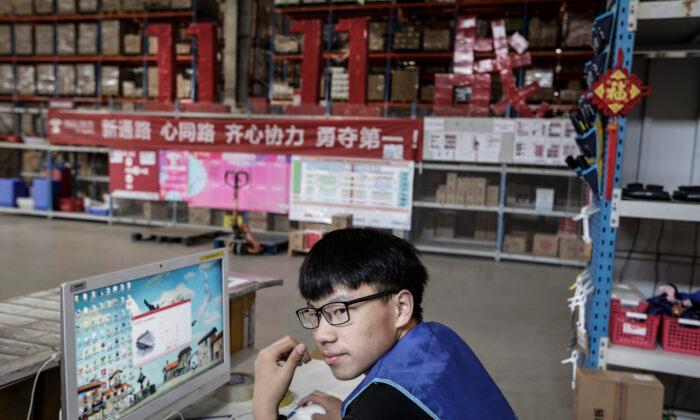Amid the authorities’ sweeping crackdown on the internet industry, Chinese tech giants are axing thousands of employees following last year’s resignation of founders or CEOs from their companies.
Speaking to The Epoch Times on April 23, Shen Rongqin, a Ph.D. at the European Institute of Business Administration (INSEAD) and associate professor at York University in Toronto, Canada, said that major internet companies faced a headwind in their development as Chinese authorities have been imposing strict controls on the internet since 2021.
“Ten years of dedication to JD ended one day with just a piece of paper,” he wrote.
JD has conducted large-scale layoffs since March, and topped Maimai’s hot search term on March 29. A number of anonymous sources claiming to be JD workers said that the company’s human resources department forced employees to leave on their own initiative on the grounds of not meeting performance standards and problems being found in employees’ computers, according to a report by a Singapore-based digital media outlet on April 22.
Jingxi, one of JD’s subsidiaries acting as a special offer shopping platform, cut 10-15 percent of its 4,000 employees, removed the departments located in provinces such as Guangxi, Sichuan, and Guangdong, and slashed half of the jobs in the advertising business.
Other business units such as JD Worldwide, JD Retail, JD Logistics, and JD Technology have set layoff ratios between 10 and 30 percent according to the Chinese version of VOA on April 2.
JD’s Beijing headquarters didn’t respond to The Epoch Times’ request for comment about the layoffs.
In March, China’s Manufacturing Purchasing Managers’ Index (PMI) dropped to 49.5 percent reported the Bureau of Statistics on March 31. A value below 50 percent represents a negative situation, which, according to Shen, drives the internet sector “even worse.”
Besides JD, high-tech giants like Alibaba and Tencent laid off tens of thousands of employees in February, multiple sources familiar with the matter told the Chinese media.
Causes of Layoffs in China’s Internet Companies
Some analysts believe the Chinese Communist Party’s (CCP) variable and tough policies, as well as the poor market environment since the outbreak of COVID-19, led to unprecedented layoffs at Chinese high-tech firms in recent years.“Large-scale layoffs in the internet industry grabs public attention—although the sector makes up less than 2 percent of China’s employment-population—highlighting the deterioration of a workforce market for domestic demands. It may be a symbol of the changing macro-environment in China as a whole,” Shen said.
According to Shen, this deterioration is partly due to those internet firms reaching a plateau phase, a stagnation with few opportunities left for rapid growth. Therefore, venture capital will not be invested in the sector anymore.
Shen said some large technology enterprises have failed in their efforts to explore diversified businesses, citing DAMO Academy, a science research institute backed by Alibaba, as an example.

Huang Jinqiu, director of Asia Newsweek, told The Epoch Times he believes the wave of layoffs indicates that the dividends from previous years of China’s reform and opening-up have been exhausted, and that old reform is now confronting “deep water.”
CEOs and Founders Retreat from Internet Business Front
In the face of the CCP’s tight grip on leading internet companies last year, founders and CEOs have withdrawn from their companies one after another.Wang Xing, CEO of the shopping platform Meituan, canceled all of his 17,000 plus posts on Fanfou, a Twitter-like microblog founded by Wang, after the State Administration of Market Supervision announced on Oct. 8, 2021, that it was fining Meituan 3.442 billion yuan (about $519 million) for alleged monopoly violations.





Friends Read Free